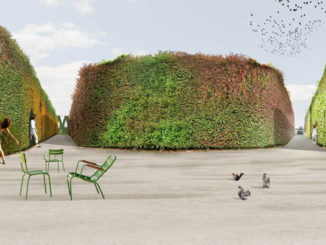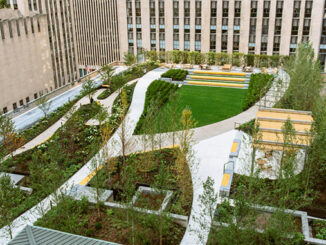How can cities create equity and quality public parks in underserved communities with limited funding?
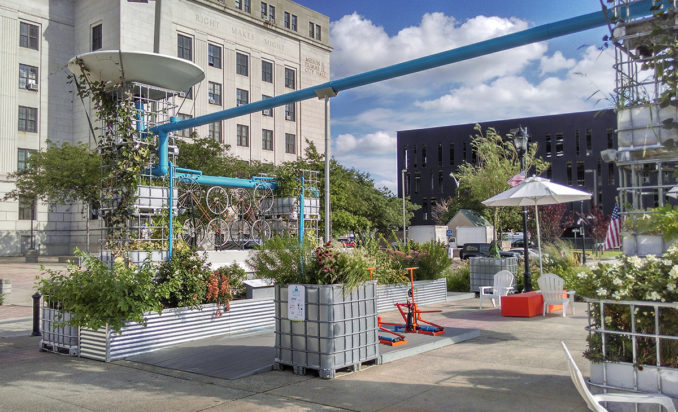
Experiments at Roosevelt Plaza Park (RPP) in Camden, NJ, one of the nation’s poorest cities, attempts to answer that challenge through an iterative, evolving and responsive process of place-making. Over a three-year period, inexpensive and repurposed materials were used to create temporary activations, each subsequent iteration based on feedback from the previous year. The process helped engage the community and change perceptions about equity in the City’s public realm.
One user said “This park is something we are not used to, we don’t get this. The City of Camden has been neglected for so long … to have somebody care enough to give this, it’s the smallest thing, but it’s the biggest thing.”
The existing 1-acre park in front of City Hall was clean and safe but lacked amenities. Activations opened in 2014 sought to create a dynamic public space with temporary interventions such as flexible seating, shade, plantings, interactive elements and programming. Challenged with a $50,000 budget, the team sought low cost, impactful and durable improvements.
Year One featured a large central tower colonnade with shade sails. The towers were constructed from locally sourced IBC totes which became a building block for the design. Columns were illuminated providing an artful display allowing visitors to interact with a changing light show.
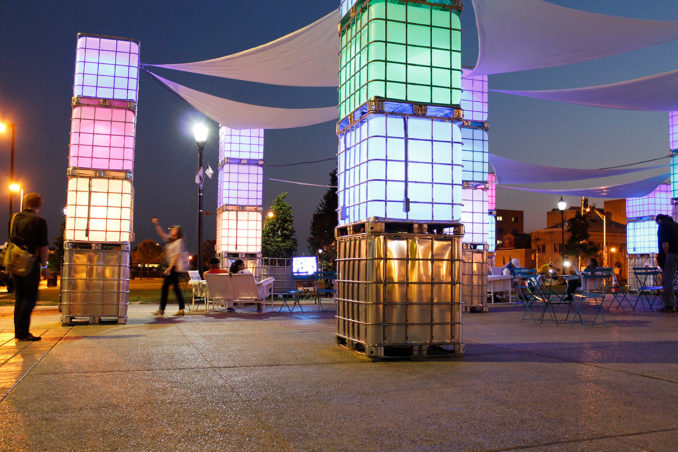
Year Two, dubbed RPP H2O, was meant to highlight city-wide flooding issues. The design incorporated an interactive water assemblage repurposing the previous year’s tote towers. Vegetated columns collected rainwater from top-mounted saucers linked by aerial conveyance pipes and harvested irrigation water. Excess water flowed into a rain garden. Gallons of rainwater collected were recorded. A central rain curtain incorporated a playful interactive water organ.
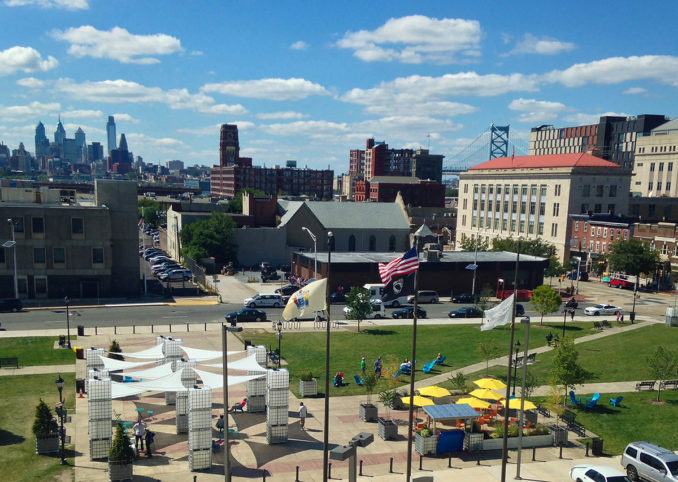
Year Three, with a focus on health and wellness, incorporated treadle pumps repurposed as exercise equipment and activated a kinetic waterwheel sculpture made from recycled bicycle parts. Plantings incorporated edibles to promote healthy nutrition.
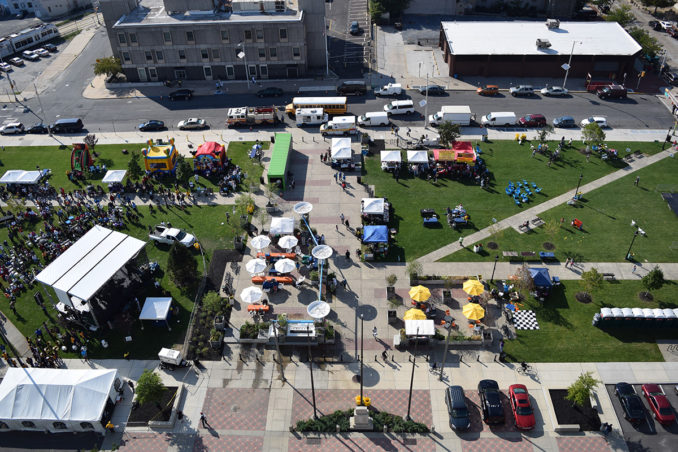
The success of the experimental activations and refocus of priorities have paved the way for more permanent future improvements at RPP.
Project Credits:
Sikora Wells Appel
Cooper’s Ferry Partnership
Group Melvin Design
New American Public Art
Image Credits: Sikora Wells Appel and Group Melvin Design

